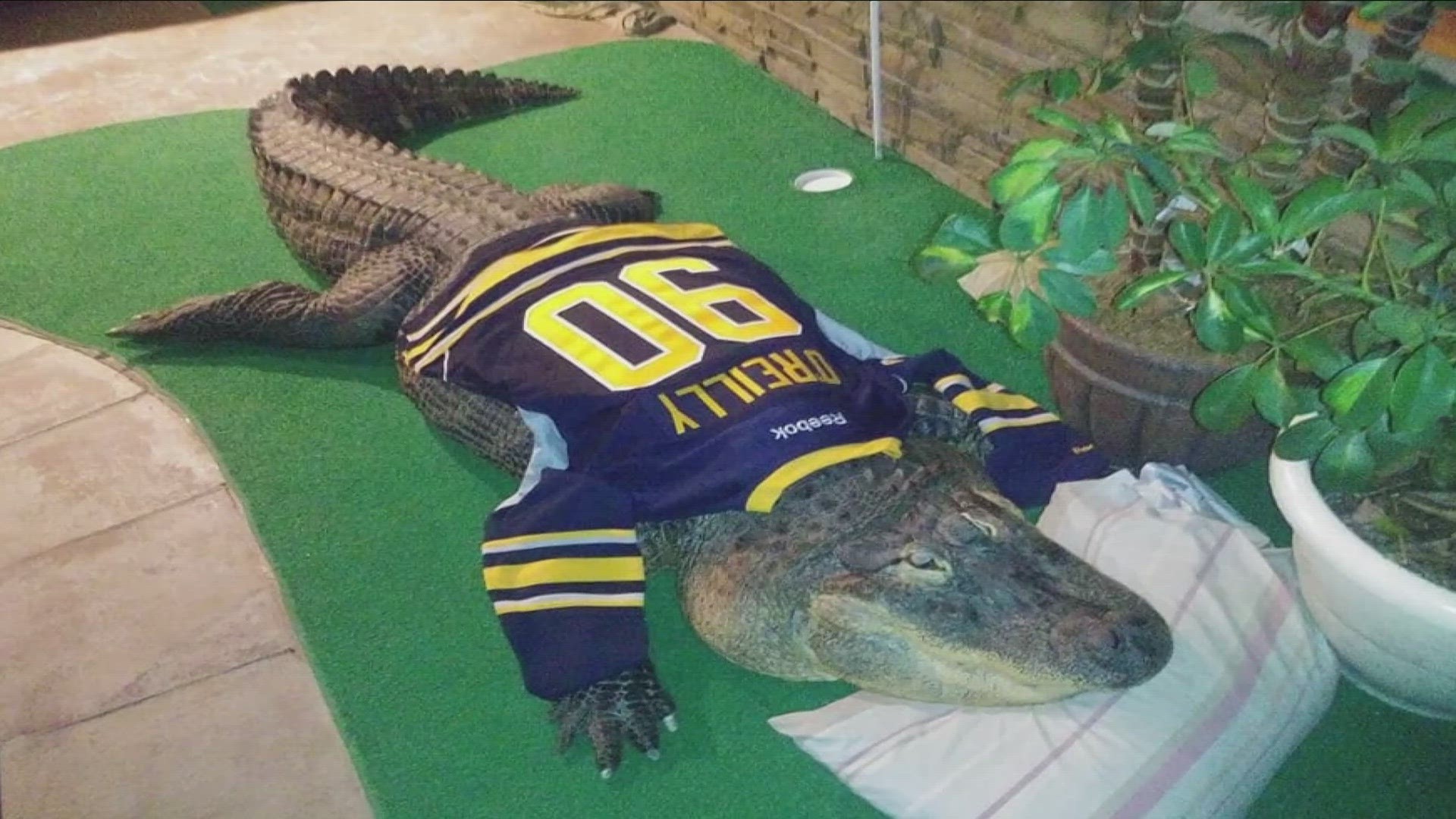BUFFALO, N.Y. — The fight to bring Albert the Alligator back is ongoing. Supporters want him home in Hamburg.
It's shown by yard signs placed everywhere on the block. There are also T-shirts with a message on them. He also took over the internet.
A new statement from the New York State Department of Environmental Conservation said, "The DEC provided Mr. Cavallaro with a generous amount of time to come into compliance and respond to the Notice of Incomplete Application sent to him outlining the deficiencies."
It continues by saying, "Albert wasn't seized because of his demeanor or physical condition, but instead because of state law and regulations."
Next-door neighbor Jean Marie was outside, laying down grass seeds when 2 On Your Side approached her.
"My joke was if anybody robs me, I'll tell them to go in the back door and go into that room."
She added, "Well, I think they should have talked to him. They shouldn't have come up and taken him without notice. He did try to talk to them. They weren't talking to him, and they still haven't talked to him."
She said she's lived next to him for 15 years and says she never seen a problem.
2 On Your Side was supposed to speak with the owner, Tony Cavallero, and his attorney, but they weren't available on Thursday. We have submitted a FOIL request to see any email interactions between the DEC and Cavallero. We're still waiting to hear back.
Here's the DEC's full statement:
"DEC’s investigation into Mr. Anthony Cavallaro’s alleged violations of wildlife health and public safety laws and regulations is ongoing. During the ongoing investigation, DEC is not able to release veterinary reports or information about the animal’s condition. This information will be released once the investigation is complete. Health assessments conducted by veterinarians and other experts are consistent with the preliminary evaluation of the health of the animal.
DEC clearly, repeatedly, and explicitly informed Mr. Cavallaro, in writing, that the facility used to hold the 750-pound alligator was deficient. DEC provided Mr. Cavallaro with a generous amount of time to come into compliance and respond to the Notice of Incomplete Application sent to him outlining the deficiencies.
The protections included in DEC’s requirements are not based on the alleged demeanor or physical condition of the permitted animal, but apply to the species possessed and in accordance with state law and regulations. It is the permitted animal owner’s responsibility to either comply or find alternate and appropriate living arrangements for the animal.
Just prior to the removal of the alligator from Mr. Cavallaro’s home, DEC received photos and information documenting that Mr. Cavallaro allowed—and was continuing to provide—unauthorized and close, physical contact between the public, including children, and the 750-pound alligator. DEC does not tolerate endangering the public or wildlife, including activities that put children and adults into direct contact with an animal classified in law and regulations as dangerous. It was at that time, based on this new information, that DEC took appropriate action by removing the alligator and ensuring the protection of the health of both the public and the animal."

